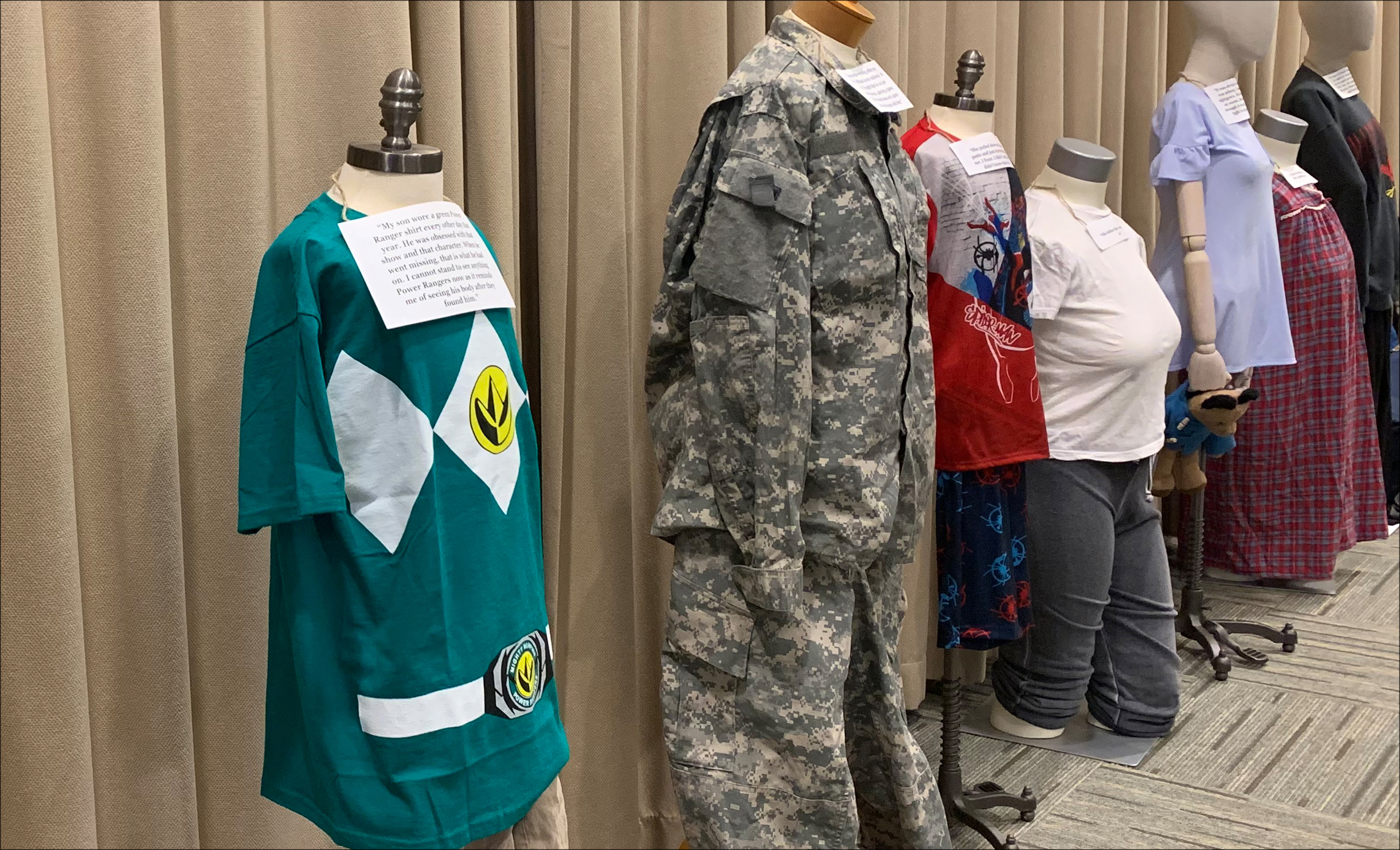Students in Shelly Clevenger’s Criminal Justice Science class fought the age-old comment “What were you wearing?” with a project presented at the 24th annual Women’s and Gender Studies Symposium.
Clevenger, who has interviewed sexual assault survivors for years, gave students in her 337 Sex Offenders class quotes from survivors. She asked students to recreate the outfits survivors described when they were attacked. Displayed on mannequins supplied by the Department of Family and Consumer Sciences, the clothes included T-shirts, sweatshirts, jeans, and children’s pajamas.
“This is a person who was just getting off work, and was assaulted by a co-worker,” said Mitchell Boice. who stood next to a mannequin wearing a simple red polo shirt and khakis. “This just goes to show you that it can happen at any time.”
The goal of the project was to inform future law enforcement officers about the mindset of those who endure assault. “I really wanted them to think about what it is like to be a survivor, and that assault crosses all different types of boundaries,” said Clevenger.
Asking what survivors are wearing is construed as a form of “victim blaming,” or making the assault seem to be the fault of the survivor. Clevenger said the feeling of being blamed for an assault is not always blatant. “It might not be this direct of a question, but it’s in there,” said Clevenger, who noted many people make decisions not to report assaults after reactions from close friends or family. “They might hear ‘Why were you drinking?’ or ‘Why were you with this person?’ from the people closest to them.”
Student Stephon Manns was assigned a quote from a woman who said she was wearing a nice outfit that could be worn to an interview. He turned to his mom for help. “We talked about what it was for, and had a long talk about the project,” he said.
Clevenger emphasized that questions from law enforcement officials can just be gathering information for a case, rather than blaming the survivor. “I don’t think the questions of officers are always meant that way, but I also let my students know the questions can be asked a different way,” she said.

